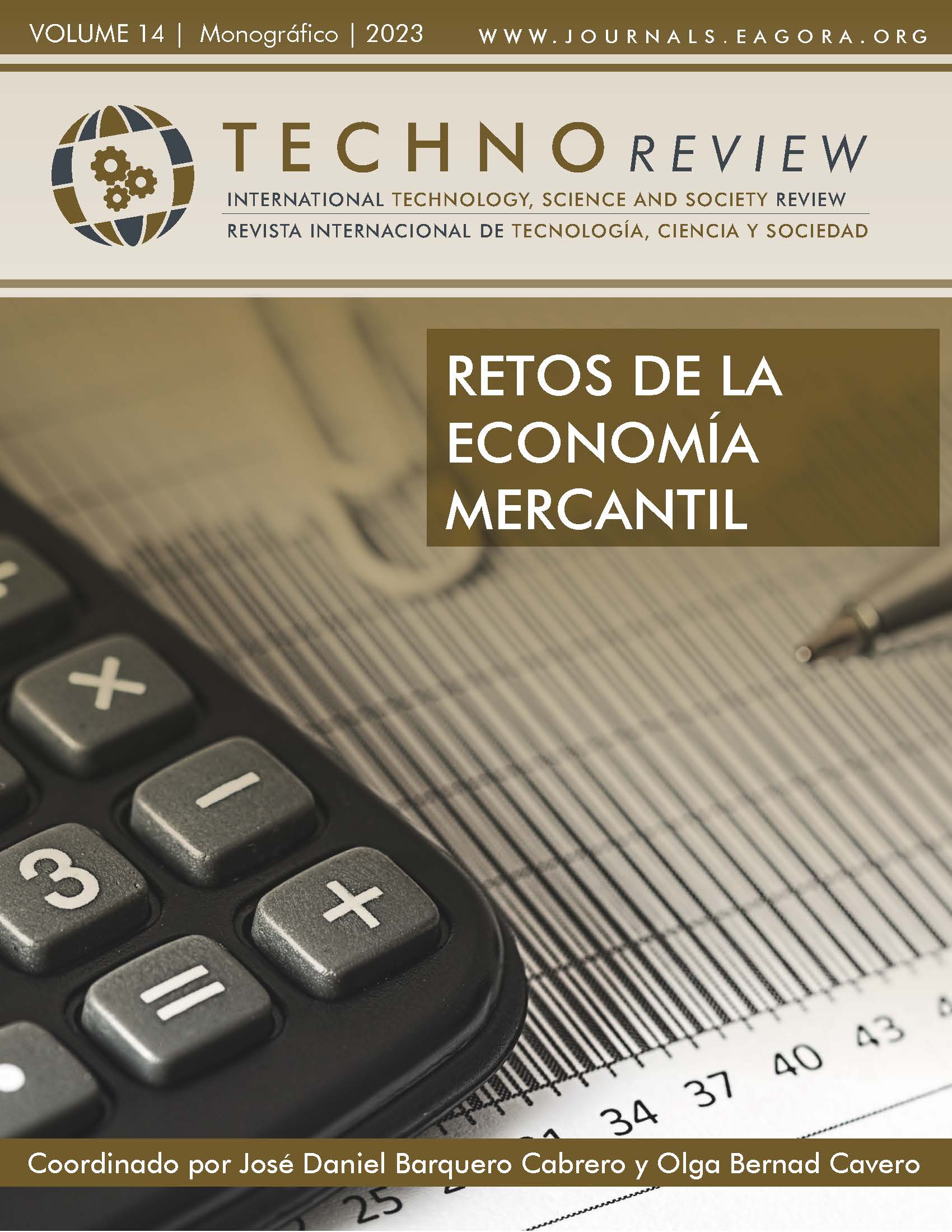Innovations in the publishing industry and new forms of scientific production
DOI:
https://doi.org/10.37467/revtechno.v14.4966Keywords:
Innovation, Publishing Industry, Printing, Scientific Production, Electronic Book, FormatAbstract
The challenges of digitization in the production of knowledge in the social sciences and humanities. The objective was to analyze the evolution of the book, from the clay to the innovation of the computer that modifies the electronic format, the state of the art is a qualitative and interpretative documentary sample of the possibilities and limitations on the new options to produce knowledge. Among the conclusions, it is highlighted that the state of the art is a qualitative documentary research methodology of a critical interpretive nature to review the formats of the book, the obstacles faced by researchers for publishing.
References
Acosta Valenzuela, N. (30 de septiembre de 2010). Breve historia del libro digital. El Economista. www.eleconomista.com.mx/tecnologia/Breve-historia-del-libro-digital-20100930-0045.html
Admin. (2019). Roger Chartier: biografía y libros del autor. https://loresumo.com/c-literatura/roger-chartier/.
Anónimo (2004). Muere Michael Hart, creador del libro digital y el Proyecto Gutenberg. Escritores.org. www.escritores.org/recursos-para-escritores/1959
Anónimo (2017). Programa de lectura comprensiva con enfoque en valores. Leer para soñar y transformar. Saquil Tzij Editorial. www.leeresaprender.com
Anónimo (2019). La historia del libro: el nacimiento y la evolución de un medio revolucionario. www.pixartprinting.es/blog/historia-del-libro/
Borges, J. L. (1944). La biblioteca de Babel. En VV.AA. Ficciones. https://drive.google.com/file/d/1Ysr9PuX7LThTRdYCuUu7hIeOEJncE20t/view
Cordón García, J. A., Alonso Arévalo, J. y Martín Rodero, H. (2010) Los libros electrónicos: la tercera ola de la revolución digital. Anales de Documentación, 13, 53-80.
Díaz Barriga Arceo, F. (2006). Enseñanza situada: vínculo entre la escuela y la vida. McGraw-Hill
DOF (19 de enero de 2018). Ley de Fomento para la Lectura y el Libro. Diario Oficial de la Federación. (diputados.gob.mx).
Eco, U. (1981). El nombre de la rosa. Lumen.
Fragano, C. Cruz, R. (2021). Nuevas tecnologías en la edición electrónica para libros. Razón y palabra, 20. www.razonypalabra.org.mx/anteriores/n20/libros.html
Galina Russell, I. (2011). ¿Qué son las Humanidades Digitales?. Revista Digital Universitaria (unam.mx), 12(7).
Galeano Marín, M. E. y Vélez Restrepo, O. L. (2002). Estado del arte sobre fuentes documentales en investigación cualitativa. Universidad de Antioquia. Centro de Investigaciones Sociales y Humanas.
Gamero, A. (18 de julio de 2013). Escritores por entregas: novelas de folletín - La piedra de Sísifo (lapiedradesisifo.com). Gabinete de curiosidades
Gómez Vargas, M., Galeano Higuita, C. y Jaramillo Muñoz, D. A. (2015). El estado del arte: una metodología de investigación. Revista Colombiana de Ciencias Sociales, 6(2), 423-442. dialnet.unirioja.es/descarga/articulo/5212100.pdf
Hoyos Botero, C. (2000). Un modelo para investigación documental: guía teórico-práctica sobre construcción de estados del arte con importantes reflexiones sobre la investigación. Señal Editora.
Lengrand, L. y Chartrie, I. (1999). Redes empresariales y la economía impulsada por el conocimiento. Comisión Europea.
Malpartida, J. (2011). Prólogo Alfonso Reyes y los libros. En A. Reyes, Libros y libreros en la antigüedad (pág. 12). Fondo de Cultura Económica.
Mark, J. (el 15 marzo 2018). Enciclopedia de la Historia del Mundo. (Trad., por R. Baranda). www.worldhistory.org/trans/es/1-105/cuneiforme/
Mascioto, M. d. l. Á. (2016). Literatura fantástica entre el diario Crítica y la editorial Sudamericana: políticas editoriales, materialidad de los textos y modos de escritura. Revista Chilena de Literatura, 93, 127-153. www.scielo.cl/pdf/ rchilite/n93/art06.pdf
Ortiz Zúñiga, L. (03 diciembre de 2019). La lectura de ‘eBooks’ crece 19%... pero los impresos aún son los favoritos. Revista Digital Expansión. Vida & Arte. https://expansion.mx/vida-arte/2019/12/03/consumo-libros-digitales-crece-entre-los-jovenes-mexicanos
Ospina, B. (2019). Definición de internet: hipertexto. Definicionbryan.blogspot.com
Santana, J. (20 de julio de 2016). Sobre el papel de las humanidades digitales. https://elesencialista.wordpress.com/2016/07/20/humanidades-digitales/
Schumpeter, J. A. (1934). The Theory of Economic Development. Harvard University Press.
Ucha, F. (2013). Definición de Libro electrónico. Definición ABC. www.definicionabc.com/tecnologia/libro-electronico.php
UNESCO. (1964). Actas de la conferencia general. 13ª reunión, París.
Vannevar, B. (julio, 1945). “As We May Think”. The Atlantic Montly. (Trad. J. Voutssás). 176(1), 101-108.
Downloads
Published
Issue
Section
License
All articles are published under an Attribution-NoDerivatives 4.0 International (CC BY-ND 4.0) license. Authors retain copyright over their work.

